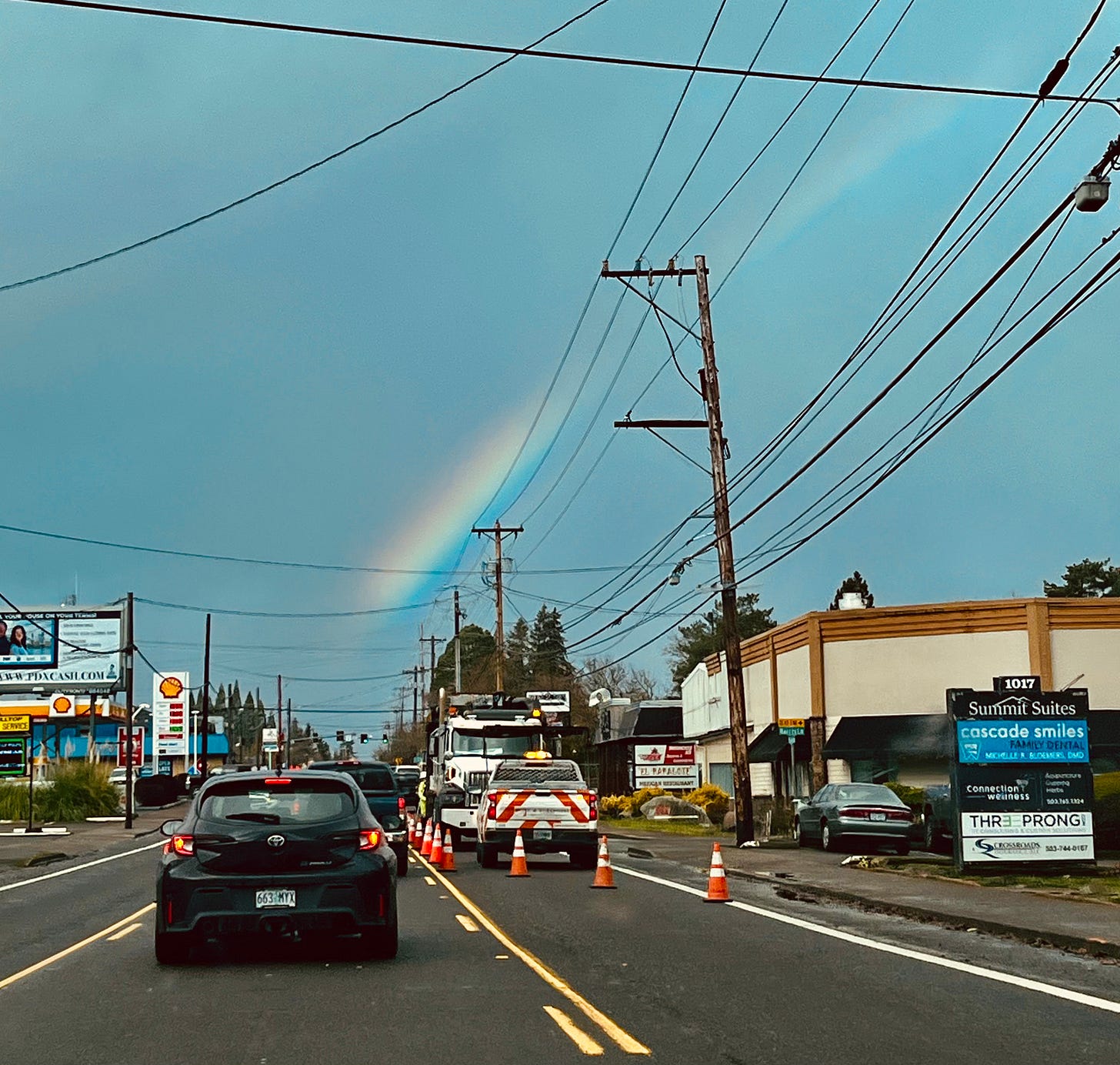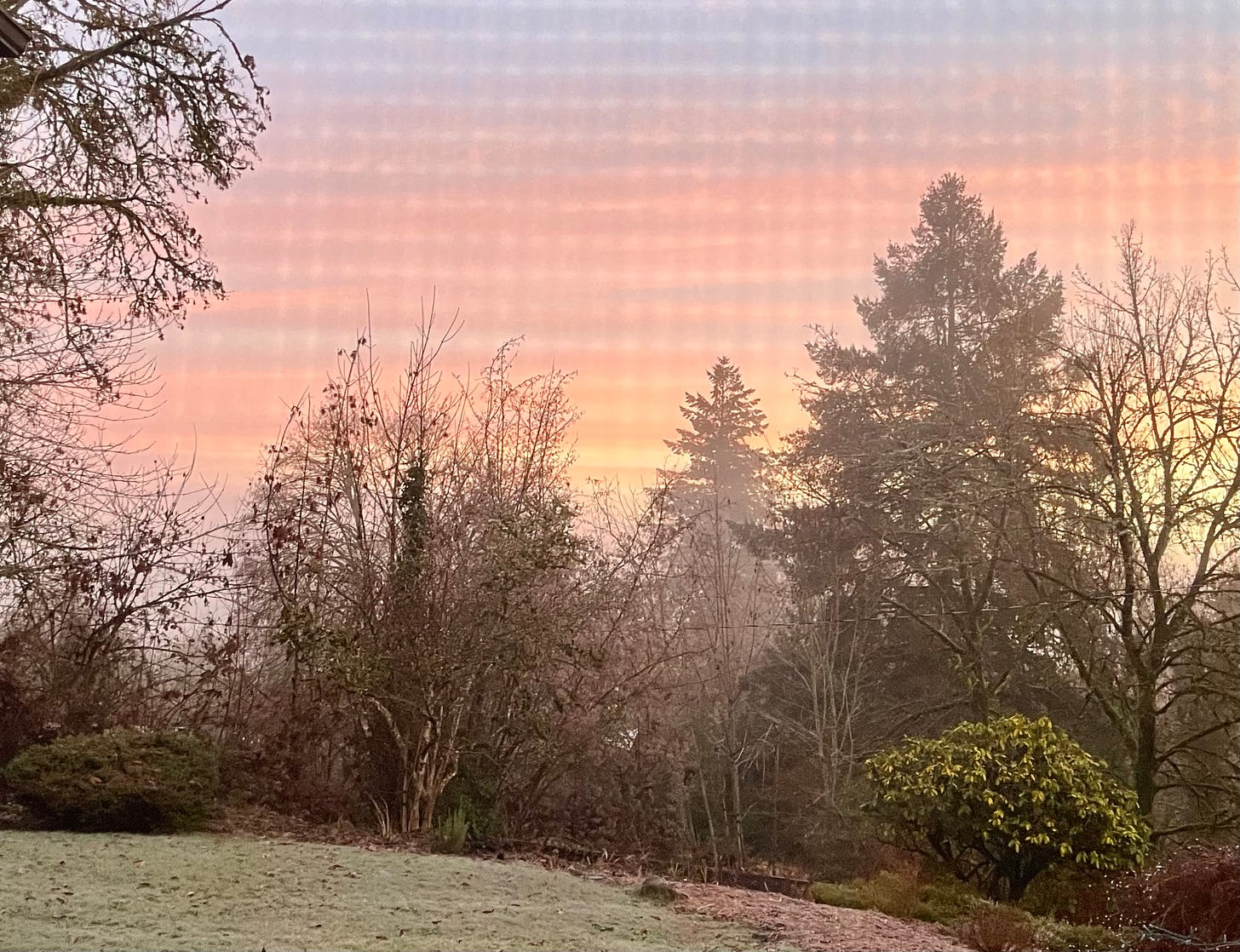
This post is a year-end gratitude letter to you, my readers and supporters! I really appreciate you, being here in community with me, in whichever way you are currently are—periodic reader, active participant, longtime lurker. Thank you.
I’ve dreamed my whole life of making my living as a writer (and writing teacher), and I’ve made what I’ve made over the course of thirty-two years, teaching, editing, writing. When I turned on The Nano’s monetization this year, I had hopes for supporting myself and my family from home while also being a full-time careworker for my mom, and part-time careworker for my in-laws. I studied the many, many “how to’s” in my “Notes” feed about what to do to generate income on this platform. I launched monetization primarily for my Poetry for the People section where I am repurposing my community college lectures, but I quickly wearied of all of the noise about making money. These last seven months of being a paid Substacker have taught me, I am actually writing here to re-member and reclaim my true self, which is to say, I am a first and foremost a poet. Yes! I am an unabashed lover of poetry and poetics, a lover of how poetry is foundational to so much about our language(s), and a lover of how poetry can connect us heart to heart.
There is so much pain in the world right now as we enter into the new year. I feel a lot of trepidation vibrating in my cells about how suffering will only increase in 2025. We (my little family and I) have had our share of pain in 2024—so much change, death, and loss. But as we have always had our basic needs met, I as always, worked to ameliorate pain in my community. I did direct actions to raise funds, plan and implement events and demonstrations, attended court hearings and community meetings, sent emails, convened and ran meetings, shared information, and built intentional coalition to expand our local mutual aid infrastructure, all while providing full-time care at home. Yet in the formula of Paulo Freire’s Reflection + Action = Praxis, I also worked to find the balance between activism, carework and rest.1 Writing free posts here as well as the posts in the Poetry for the People section—including practicing my own writing and embodiment exercises—helped me so much to reclaim my true love, which in turn has helped me embody, align, and balance myself. So, again, thank you for being the people in my publication, for whom I write and who keep me writing.

Before the year ends, I also wanted to more publicly thank Emily Van Duyne, author of the book (and Substack) Loving Sylvia Plath: A Reclamation. Reading Loving Sylvia Plath was more reclamation of my above-mentioned truth. I have loved Sylvia Plath—American poet, writer, and feminist icon—since long before I really knew anything about poetry (or feminism). I instinctively loved Plath’s rhythms and rhymes, her metaphors and sounds, and, most of all, her bold expression of experiences I could sense in my body though I could not understand back then. But I had friends who were suffering—who, like Plath, had tried to end these own lives. I wanted to know more and even wrote a big junior-year paper on adolescents and suicide, and I later studied Plath and imitated her work. I wanted to understand and ameliorate their suffering.
Van Duyne’s book is about how writing our truth, naming our truth, and have our truth remained named is incredibly challenging when powerful men (yes, men!) are committed to remaining in power and having control. Loving Sylvia Plath helped me understand why, after deciding to major in English with a poetry concentration in an honors writing program, I took a detour; i.e., I did not directly go for a masters or teaching degree. Instead, I went on for many years to work as a violence prevention specialist for a rural women’s resource center. Reading Van Duyne’s book helped me understand that naming the nuances of suffering and violence is so critical—particularly violence against women as our bodily autonomy is both constantly erased and somehow simultaneously on the line. Van Duyne shows how, contrary to many critic’s story that Plath was obsessed with suicide, violence from her own husband (Ted Hughes), the publishing world, and others is critical to us knowing and truly loving Plath. She survived a lot before she did not survive: important facts that need to be illuminated, not hidden in the shadows or buried underground. Loving Sylvia Plath also includes the human vulnerability and fraught-ness of being a female scholar, a mother, a domestic violence survior, a truth-seeker, and yes, a feminist. These are themes I have been exploring my whole writing life, including when I started this publication three years ago. So, thanks Emily, for your work, your synthesis, and your love for Sylvia Plath.
This year helped me understand and embody that I, too, have always been trying to synthesize the language of violence and suffering with the art of poetry; that balance is exactly the tight-rope Plath walked (and achieved) and inspired in me. Here I am, decades later, working in poetry and in life, to find beauty amid destruction, light amid darkness, words amid Big Daddys everywhere trying to silence the self. I am trying to make beauty, a truth that John Keats always knew:
"When old age shall this generation waste, Thou shalt remain, in midst of other woe Than ours, a friend to man, to whom thou say'st, 'Beauty is truth, truth beauty,—that is all Ye know on earth, and all ye need to know.'"
May you find beauty and truth in 2025, in the smallest places, line by line, word by work, and heart in close proximity to another beating heart.
With gratitude, Nancy
This article was a good primer on Freire, if you’re interested.



